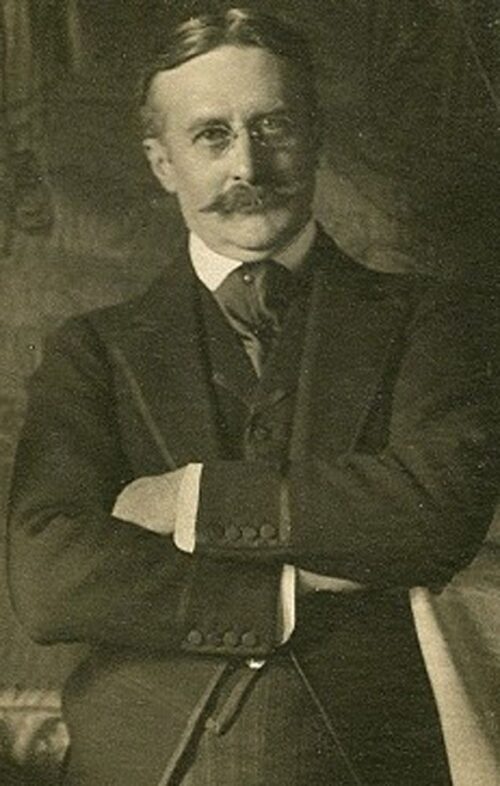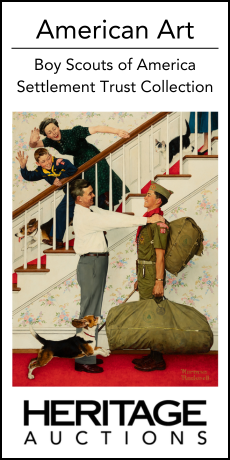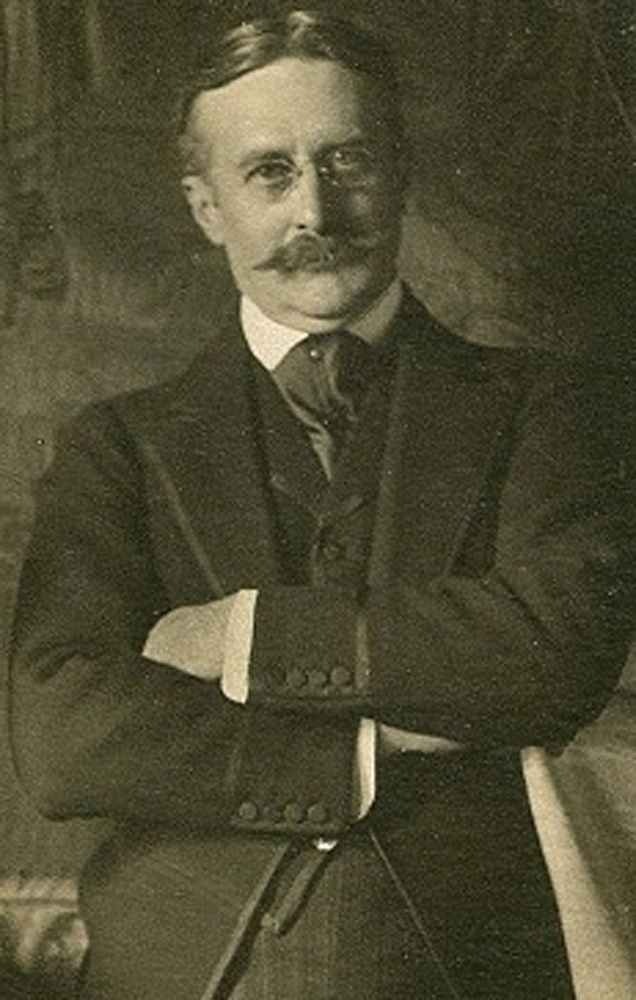
Harry Gordon Selfridge

By Megan McKinney
We closed the first segment of our Harry Gordon Selfridge series by wondering whether Michigan dry goods merchant Leonard Field, for whom Harry worked a bit in Jackson, Michigan, would give his Chicago cousin, Marshall Field, the reference Harry requested. The answer is that he did. And Field did hire Harry, however, not in the glamorous retail division located in the handsome State Street store, but rather in the wholesale building over at Market and Madison.

There the young man worked as a stock boy in a basement storeroom. It would be a while before he graduated to State Street and retailing, but he would —eventually. After about a year, Harry became a traveling salesman, traipsing around from one dreary little Illinois town to another. This went on for three years. As depressing as it was he knew he would return to Chicago and with it, retailing in the stylish State Street Marshall Fields.
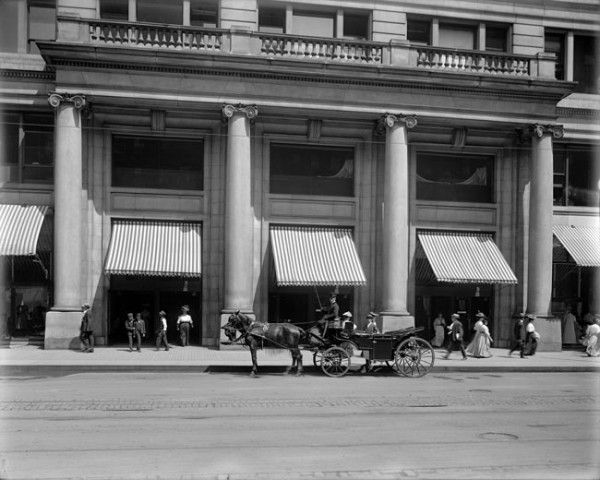
But even then Harry was only part way to his goal. First he reported to Field’s long-time stuffy retailing head, J.M. Fleming, who considered him impetuous and pushy—which, of course, he was. However, after a year, Harry was made assistant retailing manager at almost twice his former salary. Then he was promoted to retail general manager, Fleming’s job. At last!
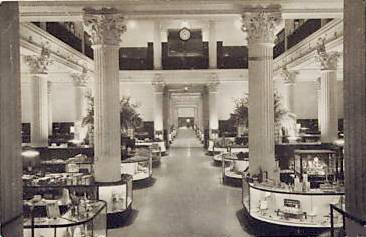
Now that he was running the retail operation and free of intrusions, the adjective most used in describing Harry Selfridge was idea and he was indeed an idea man. We are so accustomed to Harry’s ideas today that is hard to believe that Marshall Field’s and now Macy’s or any other complete department store was ever without them. Some—such as bargain basements—have come and gone in many stores, but here is a candid photo of what Harry’s—the original bargain basement—had become in 1938.
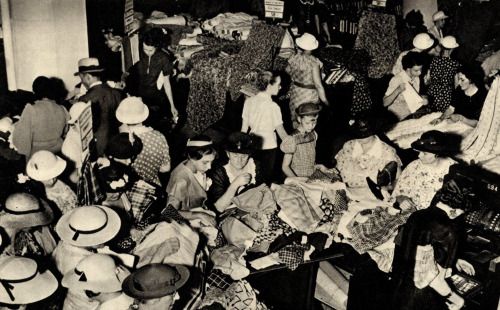
Going back much further, try to imagine a department store without window shoppers
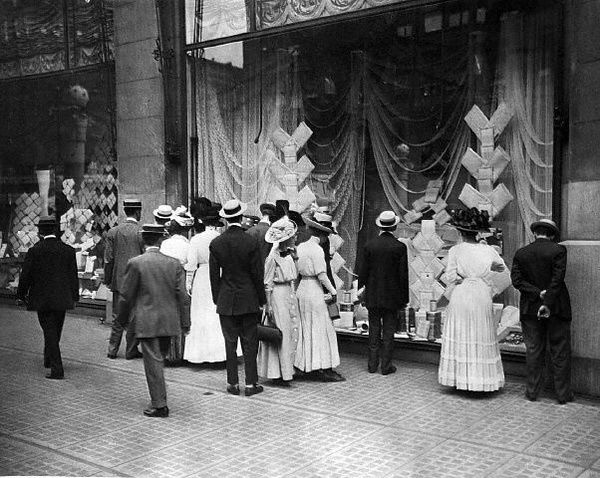
Or the imaginative windows that would draw them to look.
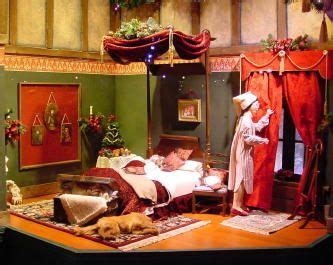
Here’s another
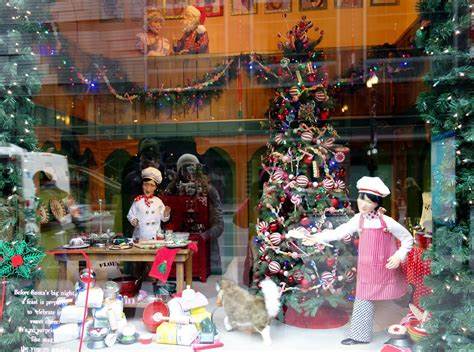
And what about the Walnut Room at Christmas? That was Harry’s idea.
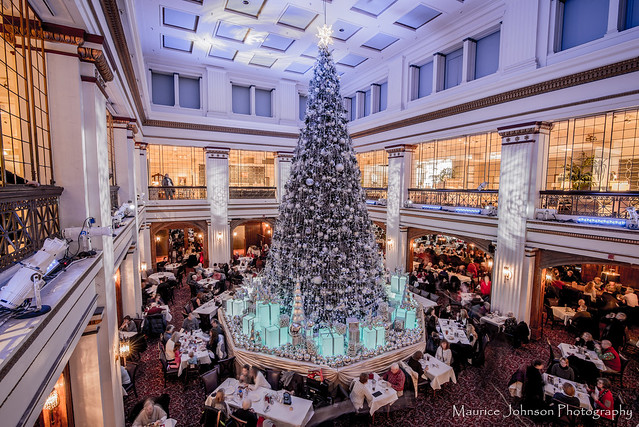
And the Tea Room. So was that.
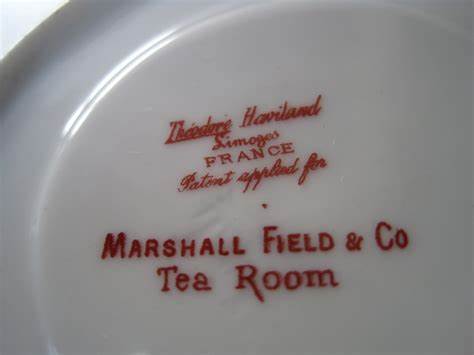
Harry invented other places a woman could discreetly and safely go alone while her husband was at the Chicago Club. For example, below we have the Reading, Writing and Rest Room at the vintage Field’s.
Gloves were important. Everybody sold them, but Harry installed a glove cleaning department for customers to bring their own gloves for refurbishing. And he added jewelry and shoe repair, as well as fur cleaning and storage. We are accustomed to these services today, but where were they before Harry Selfridge?

Anything to bring the customer into the store and keep her there.



